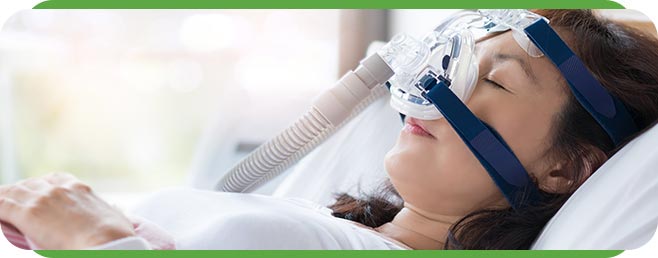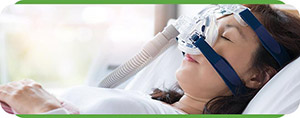Where Can I Find Snore Guards in El Paso, TX
Do you need a snore guard you can rely on? Come to Koala® Center For Sleep & TMJ Disorders for top-rated snore guard treatment in El Paso, TX. For more information on the benefits of snore guards, call our clinic or request an appointment online today.


Table of Contents:
What are Snore Guards?
How do snore guards work?
How does oral appliance therapy treat snoring?
What Causes Snoring?
Snoring is an extremely common condition, affecting about 4 out of 10 adults on a regular basis. There are many causes of snoring, from sleep disorders like obstructive sleep apnea (OAP), to health conditions like obesity. 95% of people who snore say that their snoring bothers their partner or family, which is just one reason why many people seek alleviation for their nighttime snoring.
Snore guards are oral appliances that are worn in the mouth during sleep to prevent snoring. They are proven to be effective at preventing snoring and are safe devices that do not obstruct airflow. In fact, they are designed to position the jaw in a way that allows the air passage to remain open. They can be created and fitted at a dentist’s office.
When your air passage becomes narrowed or blocked, snoring and obstructive sleep apnea may occur. Snore guards gently hold the jaw forward to allow the air passage to remain open during sleep. Snore guards are oral devices worn in the mouth that are specifically designed to help eliminate snoring, are easy to fit and comfortable to wear. They work by stabilizing the oral opening, allowing air to pass through the mouth unobstructed. This reduces the amount of movement of the tongue and vibration in the throat, which minimizes and even completely eliminates snoring.
Oral appliances work by holding the lower jaw forward, therefore keeping the tongue in a position that does not block the airway. This reduces the risk of airway obstruction during sleep, as well as snoring. If this device is effective, the sound of snoring should be lessened or gone entirely.
Several factors affect whether or not someone will snore, such as:
Genetics — The size of tonsils or tongue, how much weight is around the neck, an elongated uvula, as well as the shape of the nose or jaw can all lead to snoring.
Health Conditions — In addition to genetics, health conditions also play a significant role. People who are overweight or obese are much more likely to snore, as more weight and pressure is placed on the throat, chest and neck.
Pregnancy — Extra pressure often increases the chance of snoring, but it is not always caused by weight gain. In fact, pregnancy often causes snoring, which typically goes away after giving birth.
Nasal Congestion — Another main cause of snoring is nasal obstruction, as it restricts airflow. This can be caused by allergies, or congestion from a cold or flu.
Physical Deformity — Deformities of the nose, such as a deviated septum, can also cause snoring. Any abnormality that restricts airflow increases the risk of snoring.
Aging — The effects of aging impacts every aspect of our health, including how we sleep. With age, the throat and tongue muscles can become relaxed, which increases the chance of snoring.
Medication and Substance Use — Certain medications, such as muscle relaxants, can increase the chance of snoring. Other substances that relax these muscles may also cause snoring, such as alcohol.
Smoking/Tobacco Use — The prolonged effects of smoking also causes these muscles to become relaxed, which has the same effect on snoring.
If you or someone you love snores, we can help you get a good night’s rest. At Koala® Center For Sleep & TMJ Disorders, our kind and compassionate professionals are experienced in helping people get the best sleep possible.
If you’re looking for effective snore guards in El Paso, TX, our doctors at Koala® Center For Sleep & TMJ Disorders can provide you with customized solutions to help reduce snoring and improve your sleep quality. Snoring can often be a sign of an underlying condition like sleep apnea or TMJ disorders, and it’s important to address the root cause of the problem. At Koala® Center For Sleep & TMJ Disorders, we offer personalized treatment options, including custom-made snore guards, designed to keep your airway open during sleep and minimize snoring.
These guards are specifically tailored to fit your mouth and help reduce discomfort, ensuring a better night’s sleep. If you’ve been struggling with snoring or disrupted sleep, our experienced doctors are here to assess your needs and provide you with the most effective, long-term solutions. Schedule a consultation at Koala® Center For Sleep & TMJ Disorders today and start your journey toward restful sleep. Call us today to book an appointment. We look forward to serving you! We serve patients from El Paso TX, Bloomington IL, Peoria – Dunlap IL and Wausau WI.

Additional Services You May Need
▸ KoalaKIDZzz®
▸ Sleep Apnea
▸ Snoring
▸ TMJ Disorder
▸ Fatigue
▸ Sleep Disorders
▸ Weight Loss
▸ CPAP Alternative
▸ Oral Appliances




